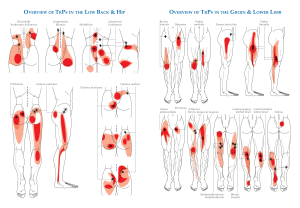The Benefits Of Walking For Your Spine

Category: | Author:
If you’re dealing with irregular or chronic back pain, the prospect of jumping into an intense physical therapy routine can be daunting, and while it would likely prove helpful, there are some other less strenuous treatments you can pursue that may help curb your discomfort. One such activity is walking.
You don’t need any special equipment to go for a walk, you just need some time and a little bit of willpower. And while it may seem like regular walks won’t do much for your spine, walking can help to treat a variety of back problems. In today’s blog, we take a closer look at why regularly walking can be so beneficial for your spine.
Improving Your Spine Step By Step
Again, we’re not saying that walking is guaranteed to be the best form of treatment for your back issue, but you may be surprised at just how beneficial regular walking can be for your spine and your whole body. Some ways that regular walking can help to prevent spine problems or treat minor or mild issues include:
- Increased Circulation – Walking helps to boost circulation throughout our body. When blood is flowing throughout our body more easily, different structures can more easily access the nutrient- and oxygen-rich blood in our system. These nutrients are important for ensuring that muscles and other tissues can perform essential functions. Boost your circulation by getting off the couch and going for a walk.
- Improved Posture – While it’s not a guarantee that you’ll always have great posture when you’re walking, you’re more likely to have a healthy spinal alignment when you’re walking compared to when you’re sitting at a desk or on your couch. A number of common spinal conditions are caused or exacerbated by poor posture, so regularly walking can help keep your spine in a healthy alignment.
- Stronger Core – Walking doesn’t blast your core muscles as much as some gym routines, but your core is still working to support your upper body with every step you take. Developing these muscles or keeping them strong can provide some much needed support to your spinal column. Increased spinal support can make it easier for you to remain in a healthy alignment and keep soft tissues from becoming overstressed.
- Supports Healthy Weight – Walking helps you burn calories and maintain or work towards an ideal weight. As we’ve talked about numerous times in the past, your spine shoulders a lot of the stress of your body weight, so shedding just a few pounds can take a lot of pressure off your spine. Regularly walking can also help to support your metabolism, which is a key component of weight management.
- Protective – Walking may not be the best way to strengthen your spine or burn calories, but it is a great form of protective exercise for your spine. Athletics or other high-impact activities can place a significant amount of stress on your spine, and while some stress is good, too much stress is a common underlying cause of injury. If you’re dealing with chronic back pain or a degenerative disc issue, running or lifting weights could serve to worsen the problem if you’re not careful. Walking, on the other hand, is a low impact exercise that provides you with a lot of the benefits of movement without significantly increasing your risk of injury.
- Relieves Muscle Tension – Finally, walking can be great for your spine because it can help to release some built up muscle tension. If you’re working at a desk for eight hours a day or spend some time watching television or reading a book in the same position, stress is going to build up in certain muscle groups in your body. Over time, this prolonged static stress can weaken different muscle groups, so it’s important to relieve some of this muscle tension with movement. Walking forces different areas of your body to experience stress and tension relief. After a long day of inactivity, relieve some built up muscle tension with a relaxing walk.
We encourage you to go out and walk if you’re hoping to overcome a back issue or you want to prolong the health of your spine, and if you’re interested in individual back care tips, we’re here for you as well. Simply reach out to Dr. Sinicropi and the team at The Midwest Spine & Brain Institute today at (651) 430-3800.
Related




